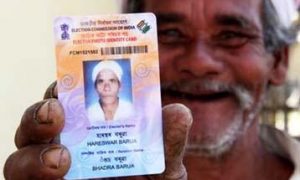Depositing large sums of cash in your savings account can attract scrutiny from the Income Tax Department. Understanding the rules and limits can help you avoid legal trouble and unnecessary complications.
Read More:- ITR filing in December: Belated, Revised income tax returns vs ITR-U – know the difference & details
Key Rules for Cash Deposits in Savings Accounts
Annual Cash Deposit Limit
- If cash deposits in your savings account exceed ₹10 lakh in a financial year, the Income Tax Department will send you a notice.
- You must provide valid evidence for every deposit made into your account, explaining its source and purpose.
Single-Day Deposit Limit
- Depositing more than ₹2 lakh in cash into your account in a single day can also trigger a notice.
- Even for one-time large deposits, you need to explain the origin of funds and provide supporting documents.
Also Read : 55th GST Council Meeting Today: What Will Be Cheaper, Costlier? All You Need To Know
What Happens After Receiving a Tax Notice?
- Submission of Evidence:You’ll need to answer the Income Tax Department’s questions with proper documentation, such as:
- Source of funds (e.g., loan repayment, business income, gift, or donation).
- Proof of transaction (receipts, agreements, or statements).
- Confirmation that the amount has been declared in your income tax return (if applicable).
- Consequences of Non-Compliance:
- Failing to provide satisfactory answers can lead to legal action.
- Your bank account may be frozen.
- In severe cases, it can result in penalties or imprisonment.
Also Read : Aadhaar card free online update offer extended – Check new deadline and steps to update name, address
Common Reasons for Large Cash Deposits
- Repayment of loans or debts.
- Business-related transactions.
- Gifts or donations for personal events.
- Proceeds from sales of goods or services.
Precautions to Avoid Trouble
Keep Proper Records:
- Always document the source and purpose of cash deposits in your account.
- Maintain receipts or agreements for transactions.
Read More: ITR advance tax deadline today: Who all should pay these taxes? All you need to know
File Accurate ITR:
- Declare all taxable income in your income tax return, including amounts received in cash.
Avoid Large Cash Transactions:
- Wherever possible, prefer digital payments or bank transfers to reduce scrutiny.
Know the Thresholds:
- Be aware of limits for cash deposits to avoid unintentional violations.
Why These Rules Exist
These measures are designed to prevent money laundering and tax evasion. By monitoring large cash deposits, the Income Tax Department ensures compliance with tax laws and promotes financial transparency.
By understanding and following these guidelines, you can manage your finances responsibly and avoid legal complications.





































